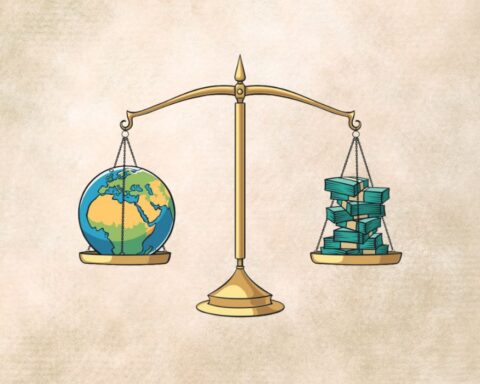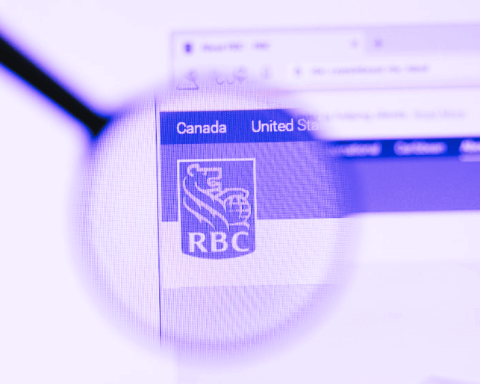Welcome to Pandemic Portfolio, a biweekly series from Corporate Knights and the Toronto Star that looks at companies relatively well-positioned to weather the economic storm triggered by COVID-19.
Financial markets seem to have found a comfortable trading zone, oscillating between the hope of a quick recovery and the fear of a second pandemic wave.
Federal Reserve Chairman Jerome Powell suggested in an interview that GDP could fall by as much as 20–30%, with unemployment hitting Depression-era levels. However, the Chairman also expects a quick recovery by the end of this year and noted the unprecedented response from central banks and governments to keep markets liquid and provide emergency benefits to struggling people and businesses. This mixed message has the bulls and bears of the market duking it out day-to-day, keeping prices relatively flat over the past month.
With uncertainty remaining, investors should hope for the best and plan for the worst. We examine two sustainability leaders that are positioned to grow if the economy reopens quickly and will continue to earn profits during a longer period of pandemic-induced economic pain.
Note: These are investment ideas, not recommendations. Speak to a financial professional before investing and ensure that any holdings are part of a more diversified investment strategy.
Unilever
Who hasn’t indulged in comfort food a little more often since the pandemic started? Well, if you think people are more likely to drown their sorrows in a pint of Ben & Jerry’s ice cream, then you might consider taking a closer look at Unilever. Unilever owns a whole bunch of well-known brands from soaps (Dove) and cleaners (Seventh Generation) to soups (Knorr) and ice cream (Ben & Jerry’s). Consumer behaviour has changed drastically since the pandemic and consumer staples companies like Unilever are quickly trying to figure out what changes will persist.
Unilever released its 2020 Q1 trading statement last month and reported that overall sales were flat. Hidden in this boring top line figure is a much more nuanced story. Sales of packaged foods, cleaning supplies and beauty products were up due to households ‘stocking up’ but Unilever’s food service business and restaurant sales were way down. Moreover, management noted that the use of beauty products like deodorant was down about 25%. Yes, we’re getting stinky working from home. Unilever seems like the perfect company for investors caught in the hope and fear dichotomy. The company is positioned to weather an ongoing storm but will also get a boost if the economy reopens quickly.
Unilever has set ambitious environmental, social and governance targets in its Sustainable Living Plan, like halving the environmental footprint of its products by 2030. The company’s sustainability reporting is top-notch and measures progress on issues like gender diversity, the health and hygiene of consumers and carbon emissions. Forty-sixth on the 2020 Corporate Knights’ Global 100 list of the world’s most sustainable corporations, I’m confident positioning Unilever as a global sustainability leader.
Unilever’s share price fell by 27% during the crash and is currently down about 11% since the start of the year. The stock is expected to pay a 3.39% annual dividend.
Cisco
Cisco is an American tech company that earns most of its revenue from selling infrastructure platforms made up of networking hardware like routers, switches and data centres. As more business happens online, Cisco has diversified to offer applications, security and technical support services. Cisco’s customers are mainly large corporations, and its revenues declined in March as hardware supply chains were impacted and companies cut back on major investments due to market uncertainty. However, security revenues grew and the use of Cisco’s WebEx video conferencing software tripled.
Large companies are quickly realizing just how important online infrastructure platforms are to continued profitability while everyone works from home, so I expect to see corporate investment in digital hardware pick back up whether or not the pandemic drags on. Even if the economy rebounds quickly, companies are noticing the benefits of an online workforce and many of the work from home and shop from home trends will persist. Cisco is heavily involved in the deployment of 5G networks throughout the world as it sells high-speed routers and switches that manage back-end data transfers. The company is hoping to build on its leadership in the Internet of Things space, and I expect this rollout to occur whether or not the pandemic persists in spite of the 5G COVID-19 conspiracy theories my uncle is posting on Facebook.
From a sustainability perspective, Cisco stands out as a leader in the tech sector. The company has assessed a wide range of environmental, social and governance issues based on both business and stakeholder importance, and has created concrete targets like impacting 1 billion people through social impact grants and programs by 2025 and cutting Scope 1 and 2 greenhouse gas emissions worldwide by 60% by 2022. Cisco publishes a thorough annual corporate social responsibility report to measure and track progress towards these goals. The company gets top marks from sustainability data providers Sustainalytics and MSCI, and is ranked fourth on the 2020 Corporate Knights’ Global 100 list of the world’s most sustainable corporations.
Cisco’s share price fell by 33% during the crash and is currently down about 11% since the start of the year. The stock is expected to pay a 3.2% annual dividend.
Tim Nash blogs as The Sustainable Economist and is the founder of Good Investing. This article was provided by Corporate Knights magazine.









